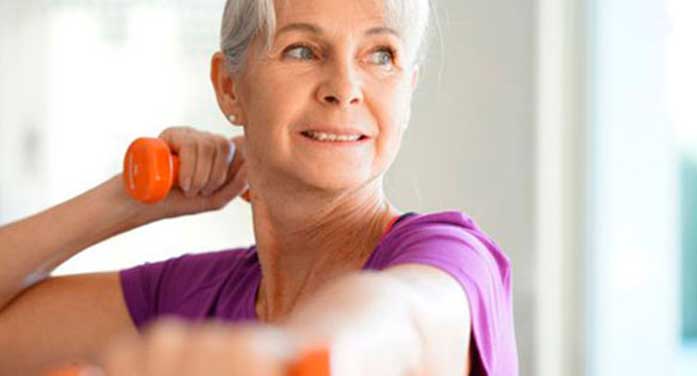Engaging in regular physical activity and following a healthy diet could help cancer survivors increase their likelihood of long-term survival and reduce the odds of their cancer coming back, according to the American Cancer Society’s newly released guidelines for cancer survivors.

Kerry Courneya
“From a cancer patient perspective, these are the things you can do for yourself, to help yourself,” said Kerry Courneya, a cancer researcher and professor in the Faculty of Kinesiology, Sport, and Recreation.
Courneya is the only non-American co-author of the guidelines, which were compiled by a committee of experts in nutrition, oncology, physical activity, community health and health disparities.
The new guidelines update previous health recommendations published in 2006 and 2012. The latest edition compiles a decade’s worth of data and evidence that identifies regular physical activity and a healthy diet as two of the most important modifiable factors in long-term health for cancer survivors.
According to Courneya, while previous editions focused on improvements in health and quality of life, the latest guidelines focus on cancer recurrence and survival, and the lifestyle factors that may be linked to these outcomes.
“Those are probably the biggest concerns of anyone diagnosed with cancer.”
The guidelines suggest that nutritional and physical activity assessment and counselling should begin as soon as possible after diagnosis and continue throughout treatment and into survivorship.
“If you’re interested in improving your odds with things you can do yourself, data shows that exercise, nutrition and lifestyle can improve your chances of survival.”
The information presented in the guidelines is segmented by type of cancer, allowing healthcare providers and cancer survivors to inform themselves about evidence-based nutritional or physical activity recommendations for their particular type of cancer, in many cases.
“This is how oncologists think; this is how most cancer patients think,” said Courneya. “A breast cancer patient wants to know what diet will help with breast cancer, what exercise will help with breast cancer. Oncologists want to see the evidence for the particular patient group they’re treating.”
The link between exercise and improved outcomes for cancer patients isn’t established for all types of cancer. However, the guidelines do highlight that exercise leads to a lower risk of recurrence and a higher likelihood of survival for three common types of cancer — breast, prostate and colon cancer.
Exercise can lower the risk of cancer recurrence through a variety of mechanisms, explained Courneya, who holds a Canada Research Chair in Physical Activity and Cancer and is a member of the Cancer Research Institute of Northern Alberta. These mechanisms include stimulating the immune system to activate and target cancer cells, reducing overall inflammation in the body and reducing risks related to sex hormones.
New breast screening guidelines fail Canadian women by Jean Seely
Could result in the deaths of far too many women. A new set of guidelines must be drawn up
“We know estrogen is linked to breast cancer growth and testosterone is linked to prostate cancer growth. Exercise can have impacts on these types of sex hormones.”
The data that informed the guidelines are based mainly on observational studies, Courneya noted, so next steps will involve large-scale randomized controlled trials. “These are the experimental studies that provide a definitive answer to whether or not adopting these changes after a cancer diagnosis causes an improvement in survival and recurrence risk.”
Courneya pointed out that people look to the American Cancer Society for accurate information about anything related to cancer, so “for them to publish guidelines saying we think physical activity and nutrition is important, that will influence a lot of cancer survivors.”
He added that it may also prove influential for cancer organizations and treatment centres, encouraging them to incorporate lifestyle components into their programming.
“I think that’s the hope, to make sure this gets far more attention among the organizations whose mandate is to help cancer survivors, as well as letting cancer survivors know these are important behaviours for you to do in addition to the life-saving medical treatments.”
| By Adrianna MacPherson
Adrianna is a reporter with the University of Alberta’s Folio online magazine. The University of Alberta is a Troy Media Editorial Content Provider Partner.
The opinions expressed by our columnists and contributors are theirs alone and do not inherently or expressly reflect the views of our publication.
© Troy Media
Troy Media is an editorial content provider to media outlets and its own hosted community news outlets across Canada.


